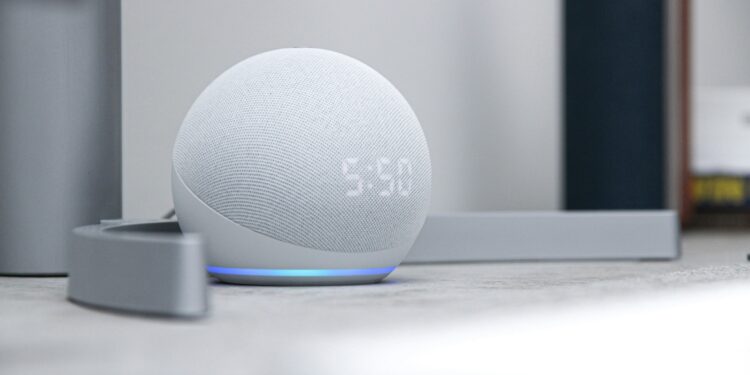Amazon will present a major update for Alexa on February 26. According to insider reports, it is an improved version of the voice assistant based on generative AI. This will enable Alexa to have longer and more coherent conversations in the future. This development could significantly change the market for voice assistants and increases the pressure on Apple to bring a more competitive version of Siri to market. While Amazon is launching the new Alexa in just a few weeks, Apple is not expected to release a fully generative Siri until 2026.
Amazon has sent out invitations for an event that will revolve around Alexa. There is no official detailed information, but it is certain that Amazon will present the new conversational Alexa. According to company insiders, the new Alexa will be able to understand and respond to several commands in succession. While the previous version could only process one request at a time, the new Alexa will be able to have longer conversations. It will also act as an "agent" for the user by completing certain tasks independently without direct involvement. What is particularly interesting is that Alexa can remember users' preferences. In the future, it will give individually tailored recommendations, for example for music or restaurants. It will also be possible to make changes to an ongoing order - a significant improvement over previous functions.
Technology behind the new Alexa
As early as 2023, there were reports that Alexa would be supported by technology from AI startup Anthropic. Reuters confirmed now that this is also the case for the new version. Anthropic specializes in advanced AI models that can keep up with the current developments of OpenAI or Google. This means that Alexa could compete with the leading chatbots that are currently known for their strong conversational skills. The new Alexa will be usable on all existing Echo devices. However, it is not yet clear how many users will have access to it in the initial phase. According to Reuters, it will initially only be available for free to a limited number of users. In the long term, however, Amazon plans to introduce a paid subscription model.
Does the new Alexa cost money?
Amazon is apparently planning a freemium model. Users who do not opt for a subscription will retain access to the previous version, which will continue to run under the name "Classic Alexa". Anyone who wants to use the new AI functions could have to pay between 5 and 10 US dollars or euros per month in the future. This subscription model has not yet been finally confirmed, but it would be a logical decision, as generative AI services incur high costs. For existing users, this means that they can test the new Alexa, but may be limited to the free version in the long term if they do not want to take out a subscription.
How Apple is lagging behind with Siri
While Amazon will soon be on the market with an advanced Alexa, things are different at Apple. Siri has received few improvements in recent years and will not get a generative AI variant until 2026. Until then, there will be minor updates that make Siri a bit smarter, but they don't come close to what Amazon is now planning with Alexa. An upcoming update in iOS 18.4 brings new features such as "Onscreen Awareness" and "App Intents". This will enable Siri to recognize content on the screen and execute commands based on the context.
Siri gets updates – but is that enough?
Users could then, for example, save an address from an iMessage without explicitly dictating it. App Intents will also enable Siri to execute complex commands across multiple apps. However, these improvements fall far short of what the new Alexa promises. A truly generative Siri will not be available until iOS 19. Even then, it could take until spring 2026 for Apple users to be able to use the full functions. Until then, Apple will probably have to deal with a lot of criticism, especially if Alexa proves to be significantly more powerful.
Amazon's strategy: Alexa becomes a real AI dialogue partner
Amazon is pursuing a clear strategy with the new Alexa: The voice assistant is to develop from a simple command execution to a real AI-supported conversation. Anyone who already owns an Echo device will probably be able to benefit from the new functions soon, although perhaps only to a limited extent without a subscription. Apple, on the other hand, will come under pressure in the next two years. While Siri continues to struggle with limitations, Alexa could become the best choice for users looking for a powerful voice assistant. The question is whether Apple can afford to wait that long - or whether they will have to adapt their AI strategy sooner. (Photo by Brandon Romanchuk / Bigstockphoto)
- Apple sets new priorities: Siri update & AI optimization
- iOS 18.4: What to expect with the next Apple update
- Health as a priority: Apple's big plan for the future
- When will Apple Intelligence come to Apple TV & Apple Watch?
- Tim Cook: Why Apple is not planning to charge for AI services
- Siri 2.0: How LLM Siri could overtake the competition





